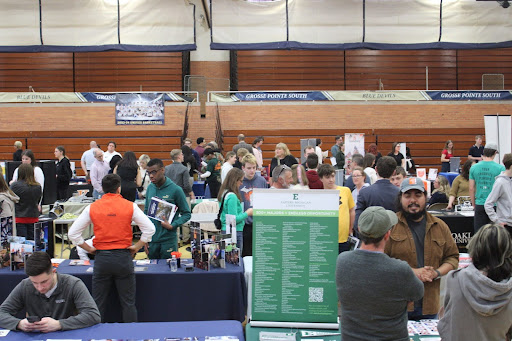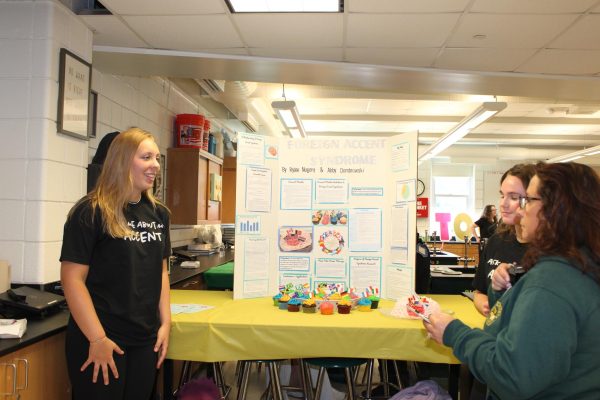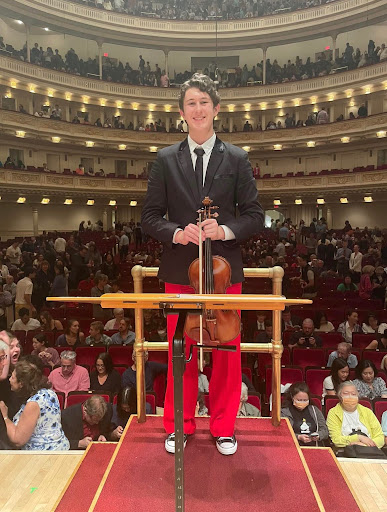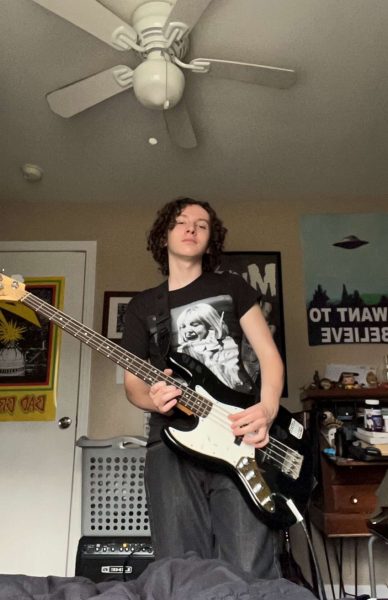Growing greens and gaining ground: Special needs students maintain and sell microgreens

Photo credit: Ella McCarthy
SEED TO SALE | After the microgreens were fully grown, the class washed, dried and packaged them to prepare them for delivery. Senior Aijalon Fernanders delivered the plants to a variety of different people around the community. “We packaged and delivered them,” Fernanders said. “We went around and said ‘do you want this, do you want that,’ and they would pay for them.”
May 11, 2023
Spreading soil, sprinkling seeds, monitoring growth, harvesting greens and packaging products are all skills that students in the special needs classrooms at North have acquired through their microgreens project. With the help of their teachers, the students have been able to grow broccoli, radish, kohlrabi and cabbage to sell around the Grosse Pointe community.
The microgreens project has served as a continuous activity for both the students and teachers involved. Special needs teacher Carol Holmes says that the process has allowed her students to show the community what they are capable of while learning at the same time.
“It is difficult to find ‘jobs’ for my students, so having this opportunity is fantastic,” Holmes said. “It gives us the chance to share what we do with the North family for now.”
The students are hands-on during the entire process, from planting the seeds to harvesting the fully grown microgreens. Once harvested, the greens are ready to be washed and packaged for sale, and the students, including Senior Aijalon Fernanders, deliver the packages to buyers.
“[My favorite part] was planting them and letting them grow to see how they got tall,” Fernanders said. “I really liked the process because it [teaches] the kids how to do things and grow stuff, and that was really fun.”
The whole project has provided countless benefits for the students, according to North speech therapist Amy Koontz, who has helped throughout the microgreen process. Koontz has seen how the project has allowed the students to grow both educationally and emotionally.

“Microgreens allow our students to learn important life skills, produce nutritional food, and see the fruit of their labors in a short amount of time,” Koontz said. “Having our students interacting with all members of the school builds community and teaches important life skills which prepares them to be active members of our community now and post high school.”
The project materials were purchased through grant money that the classrooms received. Currently, once the growing and harvesting process is completed, the microgreens are sold for $2 per ounce. Koontz notes that sales will not only help the students to interact with members of the school community, but it will also provide funds for the classrooms.
“Our start-up money was generously donated through a grant from The Family Center of Grosse Pointe and Harper Woods,” Koontz said. “Any profit will be used toward community-based instruction field trips or supplies that support these activities.”
Because of the success and benefits of the microgreens project, Holmes says that it will be repeated in the future. She hopes to grow their product by increasing the number of microgreens that they produce, and she is happy that her students have been able to enjoy the process.
“Growing microgreens is something that the students can be successful at and it is fun for them,” Holmes said. “Next year, we’d like to plant more trays so that we have more microgreens to harvest and package.”












